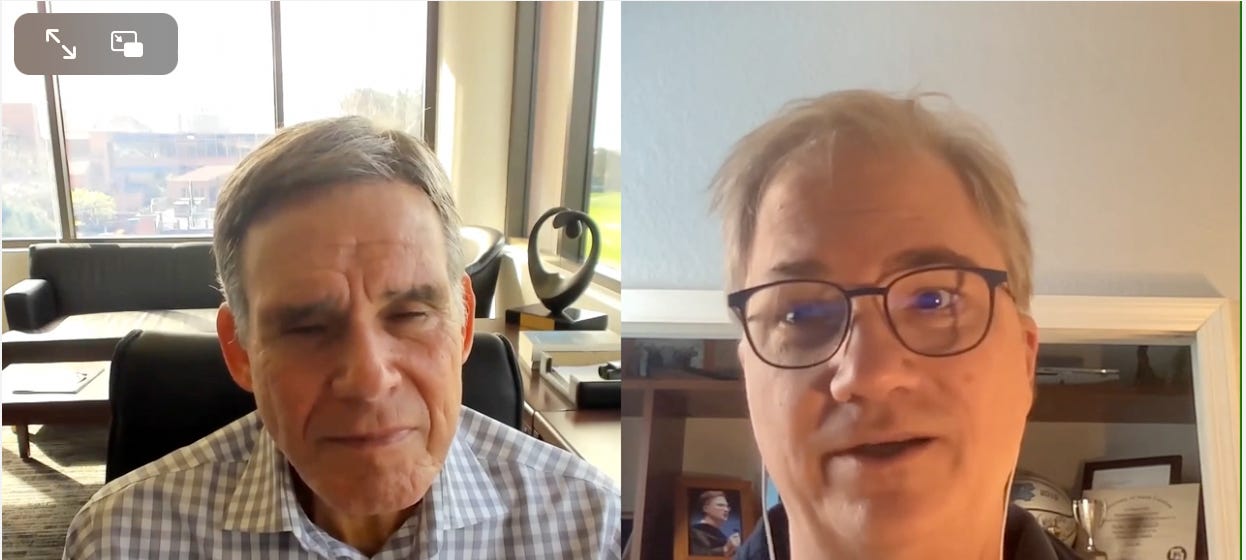Universities need to stop hiding from research integrity problems
Talked about this a lot with Eric Topol on his podcast
This weekend, Eric Topol over at Ground Truths posted a podcast that I did with him about many topics in science, including a lot of stuff about research integrity:
We had a great time talking about recent problems at Stanford and elsewhere where universities have made problems with papers that have falsified images in them worse through their clumsy handling of the investigation and public relations. I said this to Eric:
"All of these things don't have to be this dramatic if we would do a better job of collaborating w/ each other on maintaining an accurate scientific record rather than letting ambition, greed and ego get in the way."
As I said on the podcast and elsewhere, I know a thing or two about the clumsy handling of problems by universities, having presided over the clumsy handling of an athletics scandal at UNC-Chapel Hill. My lesson: don’t hide under your desk, and instead, talk to reporters on the record. Despite the fact that no one wants to go through what I did, they don’t seem to be able to take my advice.
Lots more in there and great questions from Eric.
Meanwhile, I was out this week with an editorial about the University of Rochester’s handling of their superconductivity problems involving Professor Ranga Dias. Nature had a superb story about the fact that the university never talked to the graduate students involved until far too late, which made the whole thing a lot worse for them. Everyone covering this is so obsessed with high-flying investigators that they overlook the fact that the lives of the graduate students are being ruined.
And as expected, the UofR was not quoted in the story. They did contact me after they saw my editorial, so maybe they’ll tell their story to someone. As long as they’re sending out statements and dodging questions, this whole matter will only continue to get worse.
Meanwhile again, the New York Times is out with an excellent video from the reporter covering the bad papers of Sam Yoon, as revealed by the sleuth Sholto David. Of course, Columbia University and Memorial Sloan Kettering would not go on the record to discuss the problems. That just gives the sleuths and reporters an invitation to keep digging.
Nearly everyone who survives a problem like this wishes they said more when it was going on. I know I do. But lawyers and PR firms continue to keep leaders under their desks until it’s too late, and the leaders go along with it as they watch the reporters pound away at them. If every time a reporter digs they find more, it’s probably a good idea to engage. But as Peter, Paul, and Mary said, “When will they ever learn? When will they ever learn?”





